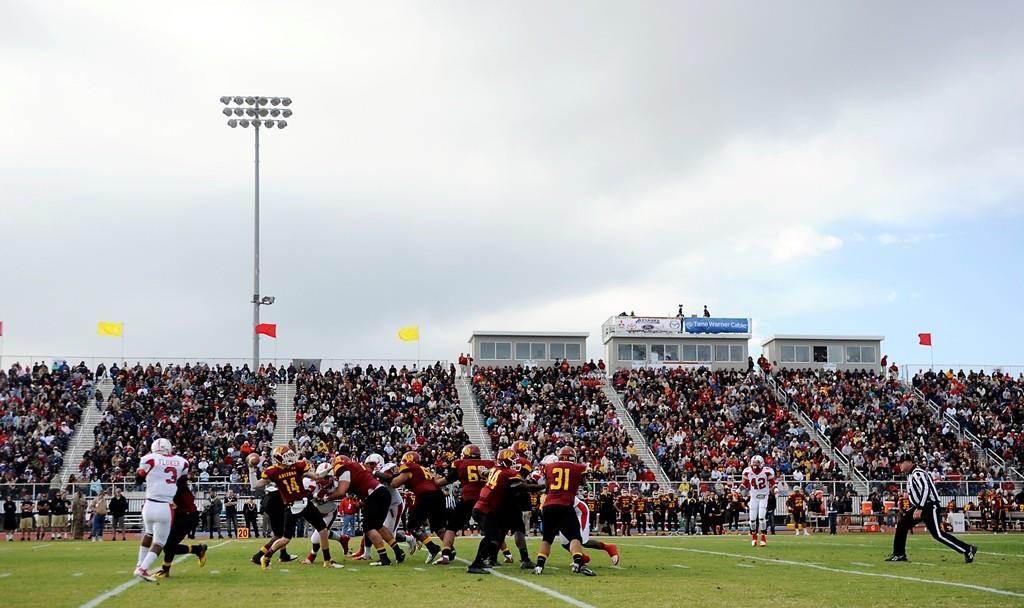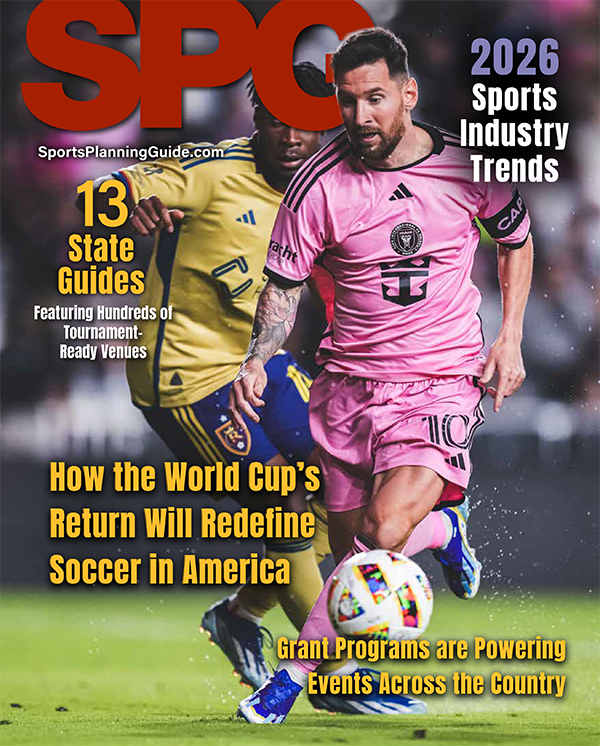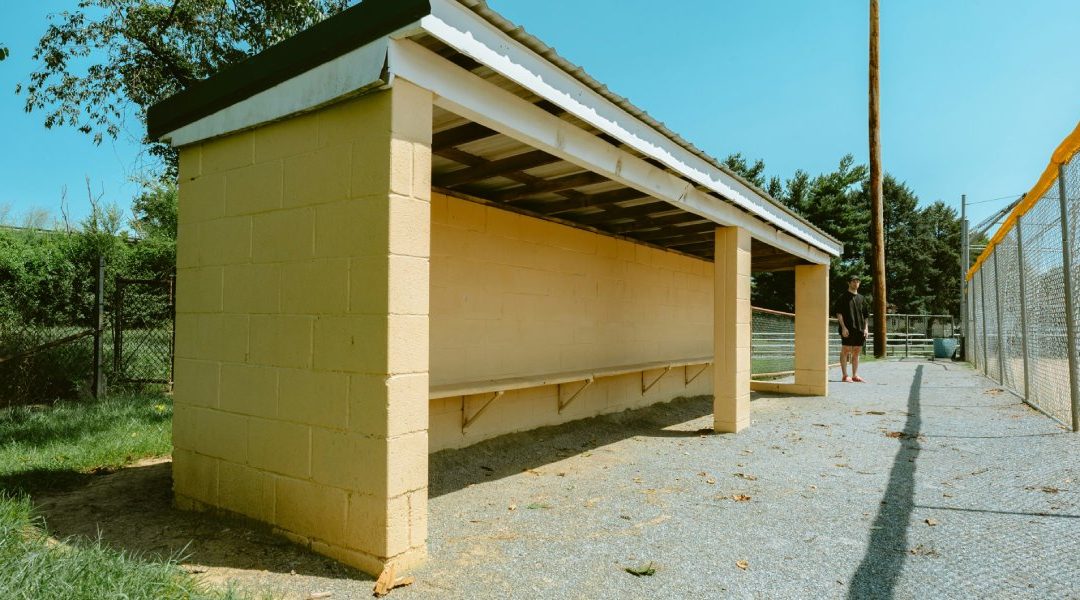What exactly is NJCAA and what is your involvement?
National Junior College Athletic Association (NJCAA) is a multi-sport organization and the national governing body of two-year-college athletics. We are the second largest (NCAA is the first) intercollegiate athletic association in the U.S. with over 500 member colleges.
NJCAA was established in 1938 and has a very strong fixture in the collegiate sports world. We sponsor 28 different sports each year, and within some of these sports we have multiple divisions. Each year the NJCAA has 48 national championship events. Most go out for bid every three years, with each year 10 to 15 events being open for bid.
In 2006, I came in as a media relations coordinator and that evolved into other responsibilities such as sponsorships and marketing. I stepped into handling our championship events a little over a year ago—something I didn’t anticipate doing—but I really have liked it since I got involved.
For a long time, I was an advocate for the NJCAA in the realm of media relations. Now, on the events side of things, I do pretty much the same thing one on one to market the NJCAA and push branding opportunities to event planners and communities that may not realize the event opportunities the NJCAA has available.
What is the bid process and what do you look for in a host?
When host destinations submit bids, our championship events committee reviews and ranks them. The top three or four prospective hosts move on to site visits and evaluations. It’s a long process—the deadline this year is September 1; site visits take place from October to February; and the committee will make the final selection at end of March 2016.
NJCAA looks for potential hosts that have demonstrated that they have hosted similar events successfully before. We want the overall experience for student athletes and teams to reflect their hard work.
For example, Grand Junction, Colorado and Hutchinson, Kansas have done a number of things to ensure long-term success of the two events they have hosted for decades. It boils down to their volunteer bases—they both have a tremendous pool of volunteers, not only throughout the week of championships, but throughout the year and planning process. Another key factor is that they have team hosts; people are readily available to help the teams with anything and everything while they are at the tournament. They assist with reminders on meetings, protocols and things like that, but they also assist in recommending restaurants and local entertainment for the teams.
Another example of an NJCAA host that does a great job of propelling success of a tournament year after year is our Division II Baseball World Series in Enid, Oklahoma. Not only do they have team hosts that take on each team, but they tap into the local youth baseball leagues and have those groups support each team participating in the tournament. The youth baseball players cheer on their teams from the stands, ask for autographs and even organize team barbecues while the college teams are in Enid. It’s brilliant.
As a result, teams that traditionally qualify for the DII World Series now have a close-knit group of fans in Enid. So, when they arrive at the tournament, they have hundreds of people coming out supporting them. In particular, there is a team from Louisiana that has advanced to this event many times over the years, and each game they play there is a large group of fans cheering them on. If you didn’t know any better at first glance you would think all those fans traveled from Louisiana. Yet, many of them are from Enid. The connection that community has made with some of our teams has been really special.
This concept is a good one to copy, in my opinion. In fact, the NJCAA Division II Volleyball Championship was just recently awarded to the community of Charleston, West Virginia. The organizers of this tournament are going to try and get youth club teams involved, which should in turn expose a lot of young players to the NJCAA and our top volleyball programs.
What are your cornerstone events?
We have two legacy events: our Division I men’s basketball championship and Division I baseball championship. The Division I men’s basketball championship has been held in Hutchinson, Kansas for close to 70 years. As an organization, the NJCAA celebrated its 75 anniversary a couple of years ago; we spent a lot of time looking at the history of the organization and how it evolved and gained notoriety. Much of that was built upon the success of the men’s basketball tournament in Hutchinson.
Some very big and famous names in the history of college basketball (coaches and players) have participated in NJCAA’s signature men’s basketball tournament, which elevated the status of our organization.
The same can be said for the NJCAA Division I Baseball World Series, which has been held in Grand Junction, Colorado for over 50 years. The way Grand Junction runs this tournament, combined with the high-level baseball talent on the field, resulted in another boost to the organization’s status and credibility.
What are some of the economic impacts your events have on host communities?
Historically, we receive economic numbers from host cities. Depending on the event and the number of teams participating, NJCAA championships can have an economic impact anywhere from $1 to 8 million. As an organization we are starting to collect and track the direct spending of our teams while they are participating at a national championship.
Do you feel NJCAA is overshadowed by NCAA?
Not sure if overshadowed is the word I would use. We understand the role we play in collegiate athletics, and we are very proud of it. I don’t think we are in direct competition with NCAA. It takes a very special community to host an NJCAA championship. My job with this great organization is to make sure event planners and communities looking to host high-level collegiate championships know about the NJCAA and the benefits that come with hosting one of our championships. In my opinion, I think NJCAA has a lot of great and unique opportunities for event planners that you just can’t find anywhere else.




